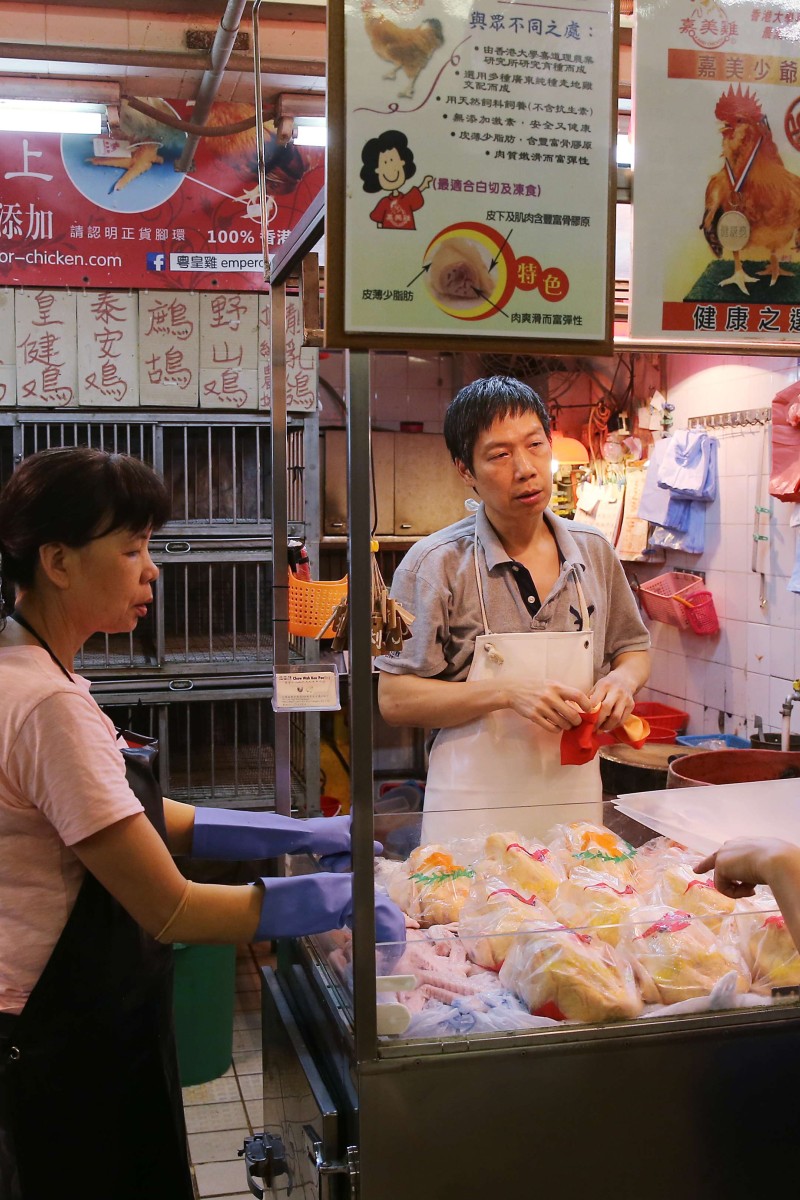 Poultry vendors selling frozen chicken at Kowloon City market.
Poultry vendors selling frozen chicken at Kowloon City market. Trading in live poultry has been suspended city-wide after the potentially deadly H7N9 bird flu virus was found in a bird’s faecal sample, leaving vendors and shoppers who rely on live chickens devastated.
A sample of droppings collected from a stall in Tuen Mun’s Yan Oi Market on May 16 tested positive for the virus, the Food and Environmental Hygiene Department said on Sunday.
Supply and trading of all live poultry – both imported and local – has been suspended in the city during follow-up investigations to trace the source of the virus.
“I hope the live chicken supply will be resumed as soon as possible,” said chicken wholesaler Cheng Chin-keung.
He was concerned the chickens would fall sick easily if there were too many on the farms at one time.
The 29 local chicken farms would be inspected by the Agriculture, Fisheries and Conservation Department to check the condition of the birds, health minister Dr Ko Wing-man said.
“We hope to make a risk assessment – whether we need to cull all chickens in the markets, and to see how long we have to suspend supply,” Ko said.
He did not confirm whether the suspension would last for 21 days as is normally the case for bird flu.
Tracing where the positive sample was from would be a priority for investigations, he said.
H7N9 is one of the more severe forms of the avian flu virus that can affect both birds and people, and can be deadly for humans.
